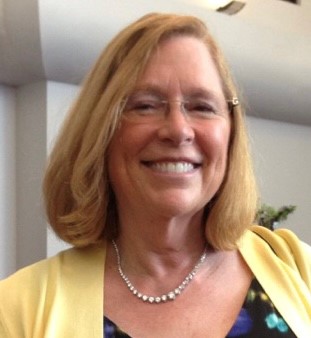CBIST Spotlight: Sherry Stock
Categories: ACBIS Insider, Professionals

Sherry Stock, ABD/PhD, MS, CBIST, VFWA, NeuroGerontologist, CEO-Brain Injury Association of Oregon and owner of Brain Logistics LLC focusing on international education and support in the European Union and United Kingdom. In my position I focus on providing information and referrals, policy issues, advocacy, communications and education through conferences, professional training, newsletters and presentations, and creating political alliances with other organizations nationwide. Sherry was a college professor teaching epidemiology, aging, statistics, medical sociology and brain injury to medical residents. She has authored dozens of handbooks, monographs, articles, book chapters and books and is an international speaker. Sherry is the mother of a severely brain injured son and the wife of a retired Navy Commander.
What made you choose a career in brain injury? Why are you passionate about brain injury?
When my oldest son was 3 months old, we were hit by a drunk driver who had 7 pervious accidents with injuries. The good and the bad: Mark is now an adult at an 18 month old level; all men are daddy and all women are mommy to him. He sits to go “potty” and loves music and plays a keyboard.
In what ways have you advocated for persons with brain injury?
I needed to do something so this wouldn’t happen to other children. I worked with legislators to pass a law that after 2 DUIs you would lose your driver’s license in California. Since then, I have worked to pass laws to help prevent brain injuries. The state of Oregon was the first state to pass a law requiring all school coaches to have annual sports concussion training, and an individual who sustains a brain injury cannot return for at least eight days. Now all 50 states have this law. We have passed a number of other laws requiring annual concussion training for coaches in sports outside of school. We have an annual brain injury conference that works with multiple states.
Do you have any recommendations for individuals who want to advocate for themselves or persons with brain injury?
One thing I have learned in working with legislators is that it has to be personal to them, so identifying one or more of their constituents with a brain injury and their family will move them to work to help them. Contacting your legislators to help is very important as well as contacting your local brain injury association. It is equally important to care for yourself and your family members. In Oregon we have 85 support groups throughout the state. It is vital for individuals and families to know that they are not alone. We also have events such as our annual Camping, Rafting and Hiking trip where we charge $25 a day per person and everything is covered including the site and food cooked by local chefs who donate their time.
Why is having a CBIST important to you? How is it helpful in your daily work?
As a CBIST, people understand that I am an expert in the brain injury field. I am interviewed by local TV news programs and journalists as well as legislators. I am on a number of state and multi-state commissions as a voice for individuals with brain injury and the experts who serve them.
What recommendations would you make regarding increasing CBIS and CBIST involvement with BIAA or ACBIS (other than certification)?
Working with individuals with brain injury, their families and friends, legislators and brain injury professionals means that I am learning something new every day. As we all know, every brain injury and every family’s experiences are unique. Sharing those experiences is very important to our trainings. As a college professor, I know that 80% of what you learn from a lecture will be forgotten in two weeks, but you will always remember the true stories that are shared. Also, doing interactive exercises that illustrate what it is like to live with a brain injury is very important. I always use The Wright Family Story and a number of other exercises. I also reach out to assisted living and adult foster homes to provide training to professionals and family members. I would like to see annual additional training aimed at CBIS/CBIST highlighting new procedures that have come out in the last year and strategies for recruiting new trainees.
